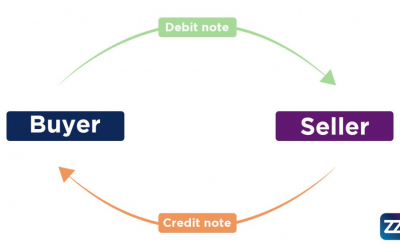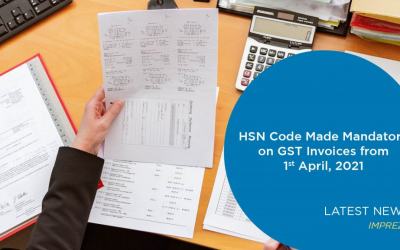 The payment of Goods and Services Tax (GST) online has made the process of tax payment easy and transparent. As a registered taxpayer of GST, you have access to three electronic ledgers, i.e. electronic liability ledger, electronic cash ledger, and electronic credit ledger.
The payment of Goods and Services Tax (GST) online has made the process of tax payment easy and transparent. As a registered taxpayer of GST, you have access to three electronic ledgers, i.e. electronic liability ledger, electronic cash ledger, and electronic credit ledger.
The first step for making the payment of GST is to generate an online GST payment challan. It is generated in the Form GST PMT – 06.
Why is Timely GST Payment so Important?
It is important to pay GST on time to avoid additional interest. According to Section 50 of the CGST Act, the interest on delayed payment will start accruing from the day the payment is due. This applies to both types of payments, skipped and not paid in full.
The interest on delayed payments is determined by the government and is not more than 18%.
If there is an undue or excess reduction in output tax liability or excess claim of ITC, the interest rate will be more but not more than 24%.
Understanding the Payment Process under GST
1. Electronic Tax Liability Register
The tax liability register records all the liability of the person that includes –
- Tax, late fees, interest, or any other amount that is payable by the taxpayer.
- Any tax or interest payable that arises due to the mismatch of output tax liability or ITC.
- Any interest that accrues.
- Reversal of interest or ITC.
Here’s the process that needs to be followed by the taxpayer –
- Self attests all the tax and other dues related to the previous tax period returns.
- Self attests all the tax and other dues related to the current tax period returns.
- Any other liability arising under the act/rules.
2. Electronic Cash Ledger
An electronic cash ledger includes any amount that is paid by the taxpayer. The amount in a cash ledger can be used for the payment towards interest, tax, penalty, indirect tax, or any other amount that is due under the acts/rules.
For the payment, the taxpayers need to generate an online challan using form GST PMT – 06. It will be valid for 15 days, and the payment can be made from any of the following modes –
- Internet banking
- Debit/credit card
- NEFT
- OTC payment (for deposits up to Rs 10,000)
3. Electronic Credit Ledger
The electronic credit ledger includes all the claims of ITC that are self-attested by the taxpayer. The amount in this ledger can only be used for the payment towards the output tax.
No entry can be made directly in the electronic credit ledger, no matter what situation.
What are Common Offenses Under GST?
The GST law has clearly defined all the offenses and penalties that will be imposed in each condition or scenario. All the business owners, tax professionals, and chartered accountants need to pay attention to the details because even a small mistake can cost a lot or may lead to severe consequences.
Under the GST law, there are 21 Offenses. They are as follows –
1. Fake/Wrong Invoices
- The person supplies goods/services without any invoice or issues a fake invoice.
- The person issues an invoice without the supply of goods/services.
- The person issues an invoice using the name or identification number of another taxable person.
2. Fraud
- The person submits false information during the registration process.
- The person provides fake financial documents/records to file tax.
- The person submits the wrong information during the proceedings.
3. Tax Evasion
- The person collects GST and does not submit it to the authority/government within 3 months.
- The person needs to deposit any GST in contravention of provisions that he collected, to the government within 3 months.
- The person gets a refund by doing some fraudulent activities.
- The person uses the input tax credit without a receipt of goods/services.
- The person suppresses his total sales.
4. Supply/Transport of Goods
- The person transports the good without any documents.
- The person supplies goods with the proper knowledge that it will be confiscated.
- The person destroys goods that were seized.
5. Others
- The person is not registered under the GST, though he was supposed to be registered by the law.
- The person does not deduct TDS or deducts a very minimal amount.
- The person does not collect TCS or collects a very less amount.
- The person being an input service distributor violates the GST rules of the input tax credit.
- The person hinders the officer during the audit.
- The person does not maintain the books.
- The person destroys any evidence.
If in case, any offenses are committed, the person needs to pay the penalty.
What Does the GST Penalty Rule Mean?
A penalty is a punishment that is imposed by the law if you fail to perform your duty or commit an offense. It can be both civil or criminal and is also known as corporal or pecuniary.
There are various GST penalty regulations that are mentioned in the law. Here are three rules –
- The taxable person on whom the penalty is imposed will be given a show-cause notice and an opportunity of being heard.
- The tax authority will give a reason for the penalty and explain the nature of the offense.
- If any person discloses a breach of law voluntarily, the authority can use this fact to reduce the penalty up to an extent.
The Penalty in Case of Fraud
In the case of fraud, the offender needs to pay the penalty amount of tax deducted, i.e., 100% penalty. For all the 21 offenses mentioned in the law, the penalty for fraud will be a minimum of Rs 10,000. (100% penalty)
Helping Someone to Commit Fraud Under GST
Apart from the taxable person, any person who does the following will have to pay the penalty. (Up to Rs 25,000)
Anyone who helps the taxable person to commit fraud, under the law.
Receives/obtains the goods and services (with full knowledge) that violate GST law.
Fails to issue an invoice or vouch any invoice appearing in the books, according to the law.
Do not appear before tax authority even after receiving the summons.
Offenses Related to Tax Evasion
If in case, the offender does not pay tax or evades, the penalty will be 10% of the tax amount due. (minimum of Rs 10,000)
If the offender has deliberately done the fraud, the penalty will go up to 100% of the tax amount. If it is a non-fraud case, the penalty will be 10% of the tax amount.
General Penalty
For any offense that is not specifically mentioned in the GST law, the offender will be liable to pay a penalty exceeding Rs/- 25,000.
Conclusion
Generally, the rules and regulations of penalty are the same in all laws. Timely GST payment is exceptionally crucial for the compliance of a business. It is essential to avoid instances of penalty or delayed payments. After considering various measures and depending on the severity of the offense, penalties are accordingly imposed. You need to maintain a proper record and pay GST on time to avoid any problems. You can also use various GST billing software and take help from professionals if required.
We offer 14 days of free GST billing software trail for small businesses in India. Login to get started!


